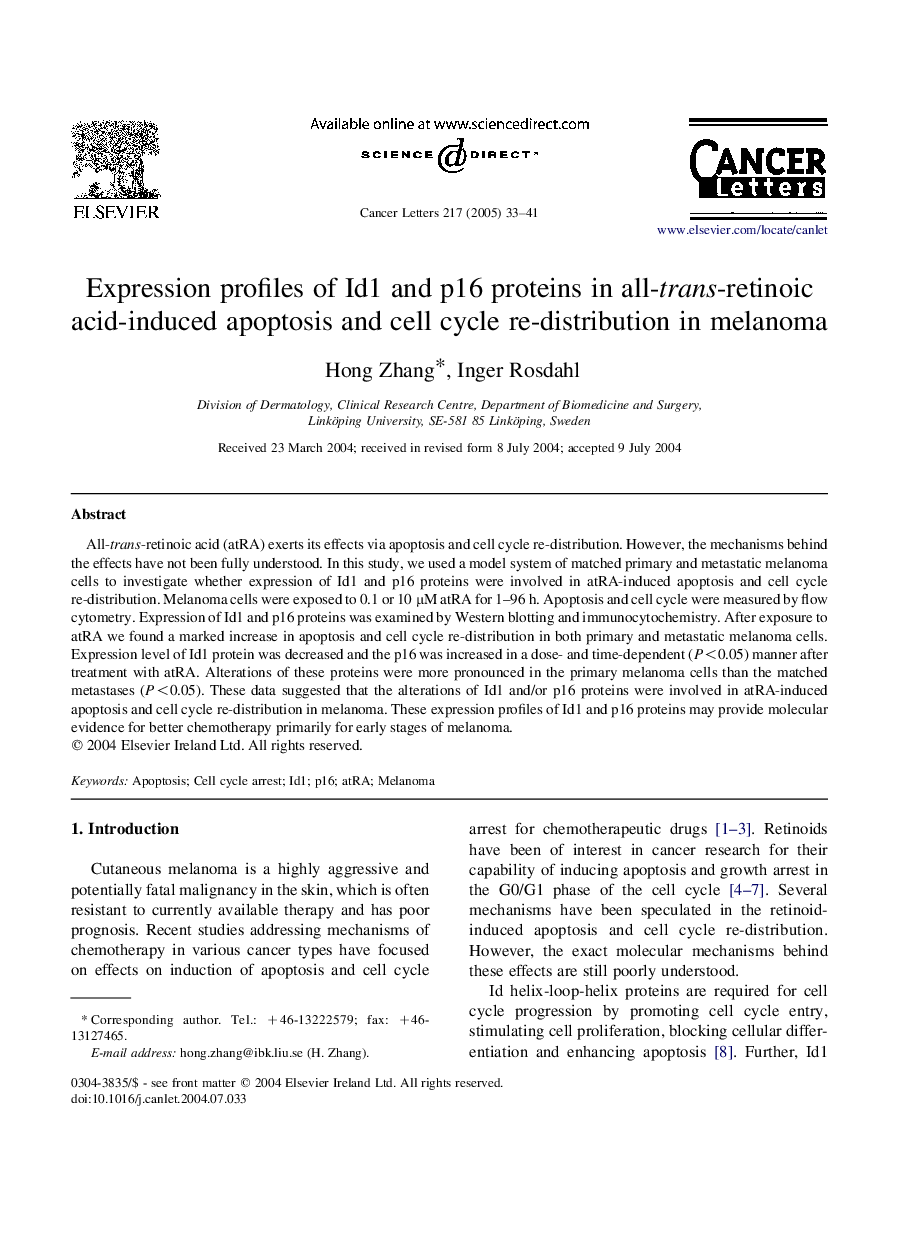| Article ID | Journal | Published Year | Pages | File Type |
|---|---|---|---|---|
| 10900447 | Cancer Letters | 2005 | 9 Pages |
Abstract
All-trans-retinoic acid (atRA) exerts its effects via apoptosis and cell cycle re-distribution. However, the mechanisms behind the effects have not been fully understood. In this study, we used a model system of matched primary and metastatic melanoma cells to investigate whether expression of Id1 and p16 proteins were involved in atRA-induced apoptosis and cell cycle re-distribution. Melanoma cells were exposed to 0.1 or 10 μM atRA for 1-96 h. Apoptosis and cell cycle were measured by flow cytometry. Expression of Id1 and p16 proteins was examined by Western blotting and immunocytochemistry. After exposure to atRA we found a marked increase in apoptosis and cell cycle re-distribution in both primary and metastatic melanoma cells. Expression level of Id1 protein was decreased and the p16 was increased in a dose- and time-dependent (P<0.05) manner after treatment with atRA. Alterations of these proteins were more pronounced in the primary melanoma cells than the matched metastases (P<0.05). These data suggested that the alterations of Id1 and/or p16 proteins were involved in atRA-induced apoptosis and cell cycle re-distribution in melanoma. These expression profiles of Id1 and p16 proteins may provide molecular evidence for better chemotherapy primarily for early stages of melanoma.
Related Topics
Life Sciences
Biochemistry, Genetics and Molecular Biology
Cancer Research
Authors
Hong Zhang, Inger Rosdahl,
